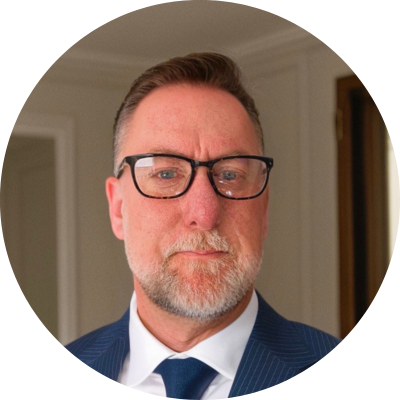Deacon Spotlight: Scott Brawley
Scott Brawley (BS 1996 in Biology, Minor in Chemistry)
Director of Development, Policy and Programs at American Academy of HIV Medicine in Washington, DC

Tell us about your current job role/employer and what you’re currently working on.
The American Academy of HIV Medicine is the nations largest, independent organization dedicated to providing excellence in HIV care and prevention in the United States. The Academy’s mission is to ensure health care professionals have the resources they need to to address HIV prevention, treatment and care for individuals at risk of HIV acquisition or living with HIV to achieve optimal Health.
The Academy has four main pillars of activity. We credential health care professionals as specialists in the field, we offer ongoing continuing medical education, we advocate on behalf of the HIV health care team and people with HIV with the federal and state governments and we connect health care professionals by profession and by geographic region.
As Director of Development, Policy and Programs I oversee fundraising efforts to support the Academy’s activities, provide strategic policy analysis as it relates to health care access, health care provision and HIV services and lastly, I oversee the Academy’s accredited continuing medical education programming.
What personal and/or career experiences did you have prior to landing your current job and leading to where you are now?
One of my first non-profit jobs resulted in having a five-year, federal cooperative agreement dropped in my lap and being told to “fix it.” If you’ve never written a federal grant, they are massive. Think 80-100 single space pages of information, abstracts, project narratives, budgets, budget justifications, work plans, performance monitoring plans, evaluation plans, staffing justifications and timelines. All of this has to be done in both a political and non-political nature. You have to meet the priorities of the current Administration without appearing political in nature. For me, it taught me that I can fundraise, establish programs that are effective, and affect policy changes that make a difference in the life of someone I will probably never meet.
What was the most challenging aspect of your first “real world job” and what did you learn from it?
The biggest challenge of my first “real world job” was learning that my personal politics don’t matter, and even worse, could be detrimental to the the job. I learned that no matter where someone may lie on the political spectrum, you can find a way to talk with them. You can find common ground to solve problems if you are both willing to give and take. Sadly, I think this may be a dying art, but I will keep trying as long as I can.
What advice would you give to new Wake Forest graduates about developing their personal life habits after college (finances, health, values, work/life balance)?
Three things. One, work is a never ending engagement. Leave work on time. It will still be there tomorrow and go spend time with your family, your gym, your friends, your passions or whatever brings you joy.
Two, prepare yourself for lifelong learning. Take the cooking class, learn to throw pottery, sign up for that language class, run the marathon.
Third, when we travel, we learn more about ourselves by experiencing others – especially abroad, but even here in the US. I guess if I could summarize it, never lose your curiosity or willingness to challenge yourself to experience something new.
How have you made personal and professional relationships in your city, company, or community?
DC is a very transactional city, in a “what can you do for me or who do you know” kind of way. I’ve found that the best way to make both professional and personal relationships is to actually be kind. Show interest in the local barista or the check out counter staff. Learn their names, learn about their families. Same for professional relationships, it doesn’t have to be about what you can do for me or what I can do for you. Show gratitude, it will take you lots of places.
Have you been mentored by anyone at Wake Forest or in your professional life? If so, what impact has that relationship had on you?
I was not mentored specifically by anyone at Wake Forest, but there is one person that definitely changed my life, even if they don’t know it. My biggest mentor came from outside of Wake, but definitely taught me the “let’s just do it” mentality.
What advice would you give to current Wake Forest students and/or young alumni who are about to start their first professional job?
Be curious! I think it’s becoming a theme here. But also, you don’t have to have a take on every subject.
It’s okay not to have experience yet. You’ll be better served by acknowledging you don’t know much about that subject, but would be willing to learn.
What are your future career goals or plans? How are you being intentional about working towards them?
Honestly, at this point in my career, I don’t think I have a five year plan. Well, maybe to own a vineyard in Provence, but that’s a whole career shift. I am more focused on experiencing everything that life has to offer, and for me, that means living intentionally.
Story published in May 2024. For current updates on Scott’s career path, visit his LinkedIn profile.
